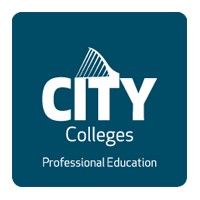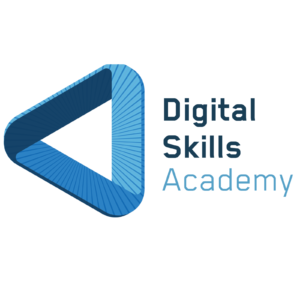Course Description
Diploma in Coding with Web Design – 23rd September 2024
City Colleges
Course Dates
Next Course Commencing:
23rd September 2024
Duration:
10 weeks, 1 evening per week from 6.30 to 9.30pm
Course Award:
City Colleges Diploma
“Learning the fundamentals of coding can lay the foundations to a rewarding career in software development.”
Course Overview
- “Learning the fundamentals of coding can lay the foundations to a rewarding career in software development.”Our Diploma in Coding Fundamentals course will cover the core principles of programming. This programme will encourage students to actively implement topics covered in class. The course will explore what programming is and what uses it can have, while at the same time focusing on displaying and calculating data in a meaningful way.Throughout the course you will learn how to use variables to store and calculate information that is then updated in real time and based on the user’s input. You will discover how to understand and implement a sorting algorithm as well as the use of recursion and iteration and the differences between them.This course has been designed to introduce students to programming with a focus on core concepts and how to apply them.
Why Coding?
- Programmers with more than 5 years’ experience can earn up to €70K per year
- Demand for programmers continues to grow with expected growth of over 20%
- You do not need a degree in coding as this can be self-taught & offers career flexibility
Course Modules
- Data types
- A core element of programming, data types are split into many categories. In this course we will look at integers, floating-point numbers, characters, strings, and Booleans to explore their use.
- Iterations, recursion
- Iteration and recursion are ways of accessing data in larger sets. This can be done using loops (for loop, while loop, for each loop, etc.) Each loop has its own benefits. Another tool we can use is recursion, this happens when code calls a specific code block over and over again until a return state is met.
- Arrays
- Arrays and lists are data stored under the same variable name. If for example, you wanted to store the ages of all students, you could have the variable name that holds all the integer values as part of an array e.g. age = {18, 21, 36, 48}. Each of these integers can be accessed by stating the variable and the array index.
- Method vs Functions
- Both methods and functions are often used interchangeably when talking about programming and some languages have more specific criteria for each. Exploring the difference and how to use each in an OOP setting will give a greater insight into programming and the methodology used.
- Object Orientated Programming (OOP)
- OOP is a type of programming style defined by the use of four main principles. These principles are Abstraction, Encapsulation, Inheritance, and Polymorphism. Although these concepts can appear to be complex at first glance, they are simple and are used to help make code more simplistic and easier to understand.
- Debugging
- Debugging is assessing the code for issues. This most often occurs when a code fails to compile. Assessing the code and finding the issues can be more complex in different languages. In the programming language C# missing a ‘;’ can cause a fail to compile while in phyton the use of ‘;’ is often optional.
- IDE’s
- What is an IDE? Does the IDE (integrated development environment) we use effect the overall quality of the code and/or complexity we have to deal with as programmers?
- Algorithms
- Algorithms are in short anything that performs an action in code. Generally something that takes in input, often data, does something and then returns new data based on the input.
- Stacks
- Stacks are the order in which a computer will address the instructions given to it by the code. In some cases, we use the stack to our advantage. This can be seen in the ‘Towers of Hanoi’ where we can use recursion and stacks to arrive at a solution.
- Languages
- Programming languages are varied and each one has its own strengths and weaknesses. Games programming often uses a variant of C with unity using C# and epic game engine using C++.
- Create a website using HTML5, JavaScript & CSS3
- Learn to create a webpage prototype using HTML5, JavaScript with CSS styling. Add various important elements to your webpage including a menu so that further pages can then be added later as the website develops.
- Content Management Systems Options
- Explore the most popular website CMS software right now are and then discover how easy it can be to create and manage your own professional looking website using these tools.
Learning Outcomes
On this course you will gain an understanding of the core concepts used in programming. Students will gain experience implementing concepts such as inheritance, recursion, and arrays. They will use sorting algorithms to order data and learn how to write and plan your program to get the results you want.
Who Should Apply?
You do not need prior coding/programming expertise, but you do need to have enthusiasm to learn and a passion for coding. A lot of your time will be spent in self-study, so you will need to remain engaged with the material and have the motivation to see the course out until it’s conclusion and final assignment.
This course is perfect for anyone who is:
- Interested in a new and challenging career in computer programming.
- Keen to take that first step into a full-time role in software development.
- Looking to unlock their creative and problem-solving potential.
- Wanting to take advantage of Ireland’s new knowledge economy.
Ireland is home to the majority of the world’s most well-known software companies. Over 900 software companies employ 24,000 people in Ireland, including both multinational and local firms.
Entry Requirements
Students will require a laptop or a PC for the duration of this course. Students will be using processing3 software available online for free for practical work during this course.
Assessment
Learners will be assessed through two continuous assessments one completed at week 6 of the course, and the other within 3-4 weeks of completion of the course.
Assessments One: This will focus on the learners understanding of programming principles, creating a simple interactive element that can be embedded into a webpage at a later stage.
Assessment Two: Learners will create a web page with Home, About, Contact and Content pages. One of these pages will host the content created in assessment one, another of these pages will be presented in a report format showcasing possible future improvements for the webpage and or assessment one. Proving self directed learning opportunities and future growth after completion of the course.
| College Name | City Colleges |
| Course Category | Coding, Computers & IT (Information Technology) |
| Course Qualification | Diploma |
| Course Location | Dublin, Ireland |
| Location Postcode | Dublin 2 |
| Course Start Date | 23rd September 2024 |
| Course Fee | 895 |
| Course Duration | 10 weeks |
| Course Times | Evening and Live - online |
| Awarding Body | Institute of Commercial Management |
| Title of Awarding | Diploma in Coding |
Course Provider
Make Enquiry
Map
City Colleges
84-88 South Great George’s Street, Dublin
Republic of Ireland


